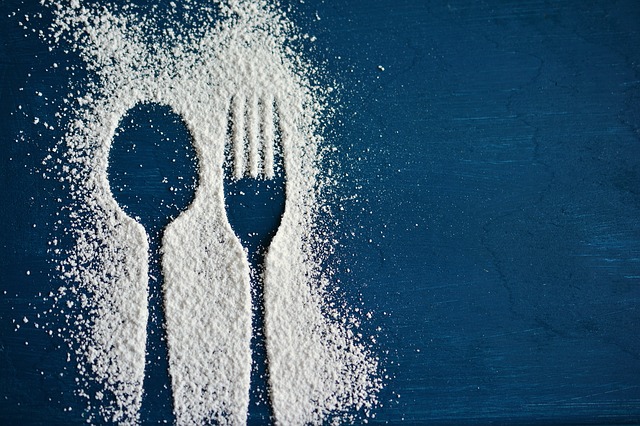Just a year after the FDA designated MDMA as a “breakthrough therapy,” the substance is now being recognized for its potential to treat eating disorders like anorexia and bulimia. MDMA is currently in the final stage of FDA trials studying the efficacy of MDMA-assisted psychotherapy for treating PTSD, which means that this substance may be legalized for medicinal use in 2021.
Although the recreational use of MDMA can be dangerous, the ongoing FDA trials are demonstrating that it can prove to be very effective for a variety of psychiatric conditions, especially when coupled with psychotherapy.
Rick Doblin, the Founder and Executive Director of the Multidisciplinary Association of Psychedelic Studies (MAPS), has stated that there is some good information suggesting that the treatment of eating disorders may end up being one of the more important uses of MDMA. However, due to a lack of funding, formal studies have not been initiated to look at this possibility.
Many people have written on eating disorder forums about their experiences using MDMA as a way to forget about eating food. MDMA does have abuse potential for this subset of people because they may misuse the substance to assist with losing or maintaining weight. The negative side effects can be difficult to cope with, and excessive or chronic use of MDMA can result in things like perpetually having loose or sore teeth and experiencing extremely heavy come-downs. To make matters worse, if a person’s electrolytes have already been impacted by a restrictive diet, losing more electrolytes through sweating while under the influence of MDMA can make users more susceptible to seizures, cardiac arrhythmia, and even brain damage.
On the other hand, MDMA has an effect on many of the brain systems that are impacted by eating disorders, including the serotonergic and dopamine systems. Unique to MDMA is the oxytocin system, which is related to social bonding and pro-social feelings. Those can help a patient develop trust with their therapist, which is an integral part of the healing process.
During the psychotherapy sessions, MDMA can help patients think and speak about things that are too painful to explore during everyday waking consciousness. This process allows the patient to work through trauma more effectively. In fact, there is a correlation between eating disorders and trauma, which bolsters the case that MDMA is a powerful treatment for eating disorders.
Since eating disorders are essentially emotional issues manifesting with physical symptoms, MDMA seems to catalyze the healing of the physical by directly addressing these primary psychological conditions.
One hurdle that comes with trying to study MDMA’s ability to treat eating disorders is that many sufferers (those with conditions like anorexia and bulimia, which can result in a dangerously unhealthy low weight) are not medically stable or even physically healthy enough to qualify for a research study. Since MDMA can cause a lack of desire to eat, these patients could have complications during the study or even end up using it recreationally outside of the study to prevent themselves from eating food.
Because of this common limitation, the treatment of patients who only have binge eating disorder—the most common eating disorder in the United States and also the least likely to cause medical instability because it does not result in dangerously low weight—may be a good place to start research. However, people who have a combination of binging and purging eating disorders may not be healthy enough to qualify for initial research studies with MDMA.
For families with children who are very young or too unwell to take MDMA themselves, the parents or caregivers could engage in a technique called emotion-focused family therapy. In this type of second-hand therapy, the parent or caregiver undergoes therapy with the substance and then uses what they have learned to support their child and help them recover.
The MAPS website has two personal accounts from people with eating disorders who benefited from taking the substance. One woman with bulimarexia healed her relationship with her body through the recreational use of MDMA, and another woman who experienced such a severe case of bulimia that she attempted suicide twice prior to using MDMA was able to love herself for the first time in her life, even after undergoing more than 20 years of what turned out to be ineffective traditional therapy. If you or someone you know suffers with an eating disorder, it may be helpful to read these raw and honest personal accounts because they they have the potential to restore hope that there is a light at the end of the tunnel.
If you choose to use MDMA to treat an eating disorder, it is important to be as safe as possible. Make sure that you are testing any substance you are going to take to ensure that it contains the psychoactive compound you expect, and carefully consider your initial dose.
Although MDMA is currently primarily being studied for the treatment of PTSD, this medicine has the potential to help with many other conditions, including the treatment of eating disorders. Until scientific research can be conducted demonstrating that MDMA is effective for treating this condition, we can at least consider the anecdotal evidence and personal accounts from people who have benefited from trying it out.
If you or someone you know has an eating disorder, more information about treatment options can be found by visiting NationalEatingDisorders.org or by calling 1-800-931-2237.











If one is to keep an open mind-and- not harbor “contempt prior to investigation” then I believe there is a growing body of research and evidence showing promise in this area of treatment.
I have a long-standing binge eating disorder. After using psychedelics to successfully wean off all anti-depressants, and develop some self-love, I am about to embark on a psychedelic-assisted therapy with a MAPS certified therapist. My intention will be to explore how my emotional needs affect/interact with my binge eating behavior. It will be an interesting journey. I am pleased to see that others with eating disorders have found healing with psychedelics.